On February 9, the people of Kashmir woke up to the news of Mohammed Afzal Guru’s hanging that had been carried out in secrecy. The convict of the 2001 Parliament attack case was hanged and buried in Tihar Jail premises. Apparently, Afzal Guru’s mercy petition was rejected by the President on February 3 and the Home Ministry gave its approval for execution on February 4.
Soon Kashmir was completely clamped with curfew. Security forces almost occupied every street and bye-lane. Protests started to engulf almost every district of Kashmir, more than 100 were reportedly injured and 3 youths died.
Kashmiri students from Delhi and Hyderabad register their protest and anguish over the execution at their respective places. This was the scene on 09th February. There were some who were celebrating the execution, while far across in Kashmir, it was a complete silence.
In Tihar Jail the scene was not of much difference; Al Vida’, said Afzal Guru to his executioner, who had himself bid him good bye with the same words a few seconds earlier. And then as the executioner pulled a lever, Afzal’s frame hung from the gallows.
“He was dead in a minute, though”, as per the jail norms, the body was kept hanging for a full half hour, said an official who witnessed the hanging. Thereafter Afzal’s body was taken down from the gallows and buried with full religious rites near Jail No. 3, right next to the grave of Kashmiri separatist Maqbool Butt who too was hanged in Tihar.
Contrary to some media reports, Afzal was told of his impending execution on the actual morning and not the previous evening. “The only thing he had in the morning was a cup of tea. But that is because he was not offered any food. Otherwise, he was so normal that he would have had that too.” Initially Afzal was wearing a pheran, or Kashmiri gown. He later took bath and changed into a white kurta-pyjama and offered namaz. “There have been about 25 executions in Tihar and senior officials [here] have witnessed the last 10, but never have they seen a man so calm and composed on learning the news of his impending death.”
In the last couple of hours of his life, Afzal had the company of some jail officials. And he narrated to them his thoughts about life and death. “He spoke of universal brotherhood and oneness of the mankind; how no human being is bad and how the soul in each one was a creation of the same God. He believed that if you moved on the path of truth that was the biggest achievement.”
In fact, Afzal was so calm in the morning that he even penned down some of his thoughts, put the date and time on the paper and signed it.
When asked by the jail staff about his last thoughts of his family, on who would take care of them, Afzal said “it was God who looks after each one of us and so would be the case now”.
“His strength came from his spirituality. He was a learned man; as well versed in Islam as with Hinduism. Often, he would tell us about the similarities in the two religions. Some time ago he had read all the four Vedas. How many Hindus have actually done that? You normally rejoice at the end of evil, [but] when a pious soul goes away, it leaves behind a tinge of sorrow,” the official said.
Recalling, how all through Afzal was “joyful” as also “cool and calm”, the officials said in the past they have seen people shiver at being told about their being taken to the gallows. “But here it was just like what we had heard about people going to the gallows smiling.”
In addition to protests; the execution also started to unearth many such write-ups by prominent faces of India, claiming that the trail of Afzal Guru was full of loop holes.
Booker Prize Winner- Arundhati Roy in her second essay “And His Life Should Become Extinct” brushes out that Afzal’s arrest was suspicious. Though the police claim that Geelani led them to Afzal, according to court records the police flashed an alert for Afzal and Shaukat on 15 December at 5:45 a.m. – a full four hours before Geelani was arrested in Delhi. Afzal was eventually arrested at 11 a.m. the same morning in Srinagar, but his arrest and seizure memos are signed by Geelani’s younger brother – in Delhi! The laptop allegedly recovered from him was not sealed for a month and accessed even after sealing by the police – enough time to add whatever they wanted. The evidence about Afzal purchasing the SIM card is unconvincing and the policeman who claimed to have recorded the phone instrument (IMEI) number stated in Court could not say how he knew the number. The call records produced in Court were dubious at best – they even showed that two calls were made at one particular time from two different instruments using the same SIM card. Cloned SIM or doctored records? Your guess is as good as mine. The identification of Afzal by various shopkeepers was not done by the usual test-identification parade but he was in fact taken to the shops by the police.
Another fact, was taken by Nirmalangshu Mukherjee in his essay “Should Mohammed Afzal die” points out, some of the key ‘facts’ against Afzal have been deemed to be proved as there was no challenge to the police version of the facts. The identification of the terrorists killed in the attack by Afzal is one such ‘fact’. The genuineness of the identification memo was not challenged by the defence lawyer. Mukherjee notes in the essay that Afzal later stated in court that the police had forced him to identify (and therefore sign the document). Similarly the lawyer did not dispute an alleged signature by Afzal on the post-mortem report. Given that Afzal had expressed a lack of faith in the lawyer appointed for his defence by the State, such failures cannot be overstated.
Yet claims of inadequate representation were rejected by the higher courts. As Roy points out, no one has challenged the fact that Afzal did not have any lawyer for five months from his arrest till when the trial began (this includes the media and police confessions, but curiously enough, no confession before a magistrate!). Of course this is true for most accused in India, but this was not just any case. Given the uniqueness of this case and the pressure-cooker situation the trial took place in (a few months after the Gujarat riots of 2002), can one simply ignore the absence of adequate legal defence on the technical justifications provided by the High Court and the Supreme Court?
Further Nandita Haksar in her essay “The Many Faces of Nationalism” points out that the first lawyer (not named in the book) appointed upon the start of the trial never appeared at all. The second defence lawyer, Sima Gulati, appointed by the State and who had experience in ‘terrorist’ trials left Afzal to join Geelani’s defence team. Four others, whose names Afzal suggested, refused to take up the case. Instead of trying any further, the Trial Judge elevated the second lawyer’s junior Neeraj Bansal as the main defence lawyer for Afzal. Though the Supreme Court later noted that Bansal had experience in ‘terrorist’ trials, it ignores the fact that in all the other cases he had merely assisted the defence as a junior lawyer and this was the first time he was actually conducting a defence in a ‘terrorist’ trial. A fine time to experiment, in arguably the most politically charged trial of the decade, if not in the history of independent India!
From lawyers to writers, everyone protested in some kind or another against the execution. Some highlighted the loop holes, while some agitated that the family of Afzal Guru were not informed before his execution. It has been reported that over 200 academics, writers, artists and filmmakers had written to President of India saying that he erred over the hanging of Afzal Guru and expressed deep “anguish and outrage”.
In the letter submitted to the president five days after the execution, they said: “We believe that you made a grave error in rejecting the mercy petition.” “If you had perused the trial court records and the lengthy documentation put together over the years by lawyers and civil rights activists, or even the Supreme Court judgment which sentenced Afzal to death, you would have known that his guilt was never established beyond reasonable doubt,” the letter said.
“We write to you in deep anguish, despair but in outrage as well. Afzal Guru was hanged on Saturday (February 9) in secrecy. We have been told – after the hanging – that you rejected the mercy petition filed by Guru’s wife Tabassum on Feb 3,” they said.
The letter claimed that as in life, Guru was denied his legal rights in his death. “Sir, every convict whose mercy petition has been rejected by the president, is entitled yet to a last resort.”
“The convict has the constitutional right to file a judicial review or a delay petition, in the high court and the Supreme Court, to seek commutation of the death sentence,” the letter said.
“Under the law, Afzal Guru may have lived still despite your rejection of the mercy petition, had he, his family and lawyers been informed of the rejection of the mercy petition. But perhaps fearing precisely this, the state whose head you are, sir, chose to execute him in secrecy,” it said.
The academics asked for an explanation for the urgency in execution of Afzal Guru. “The Indian state must explain why it displayed such urgency in executing Afzal before those others whose mercy petitions your office has earlier rejected.”
Those who couldn’t be a part and reach out to the family of Afzal Guru, expressed their anger through online/ social networks.
Jamsheed Rasool, a Kashmir youth wrote on facebook –“My tears just don’t stop to flow…..i have never wept so much all my life……when would this slavery end….when would we be free…….thousands of salutes to shaheed Afzal Guru-THE SWEET SWAN OF JHELUM.”
Bakhshi Noain @NoainBakhshi, on Twitter wrote -“#AfzalGuru today joined the list of Kashmir’s great martyrs. All Indian tyrants to rejoice, of course enemies we are and enemies we remain.”
“@MirzaWaheed. A prominent writer of Kashmir on twitter wrote–“India, what is the state of your collective conscience today? It’s got to be shining. #AfzalGuru”
“@A Kashmiri Activist on facebook wrote- “If the state thinks that by clamping down Internet, phone services, blocking channels, Imposing Curfew, banning local media, halting necessary amenities like food and milk, it can supress Kashmiris and Kashmiri cause, let me tell u that you are doing us a great service by all this.. It cements and strengthens our cause and our feelings towards our nation.. You cannot silence the feelings..”
This Tragic story may not find the concluding lines; but it has certainly started a new chapter where yet another Historic Persona of Kashmir walked to the gallows in a peaceful and composed frame of mind marking the beginning of a new chapter of 2013.

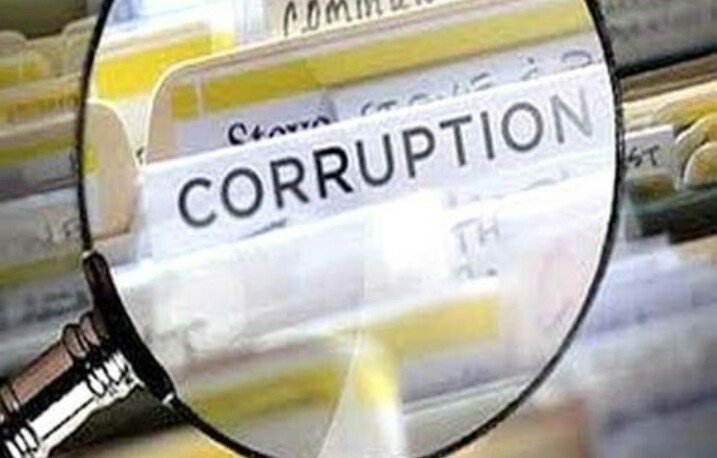
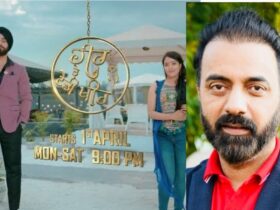
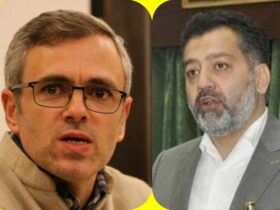
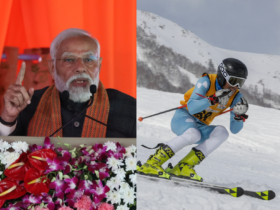

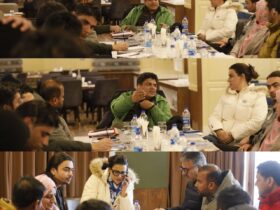
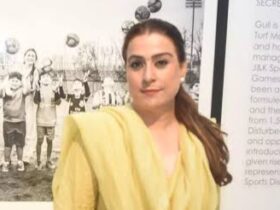

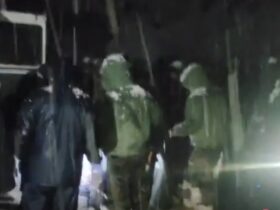


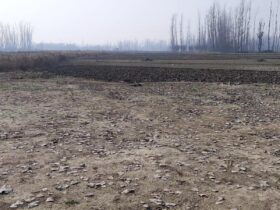
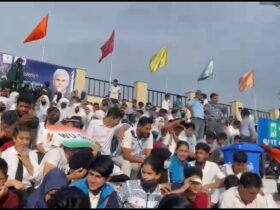

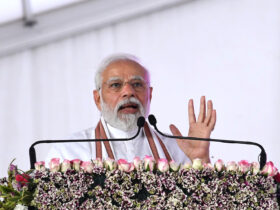
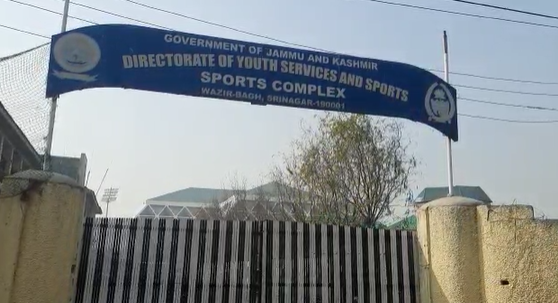
Leave a Reply